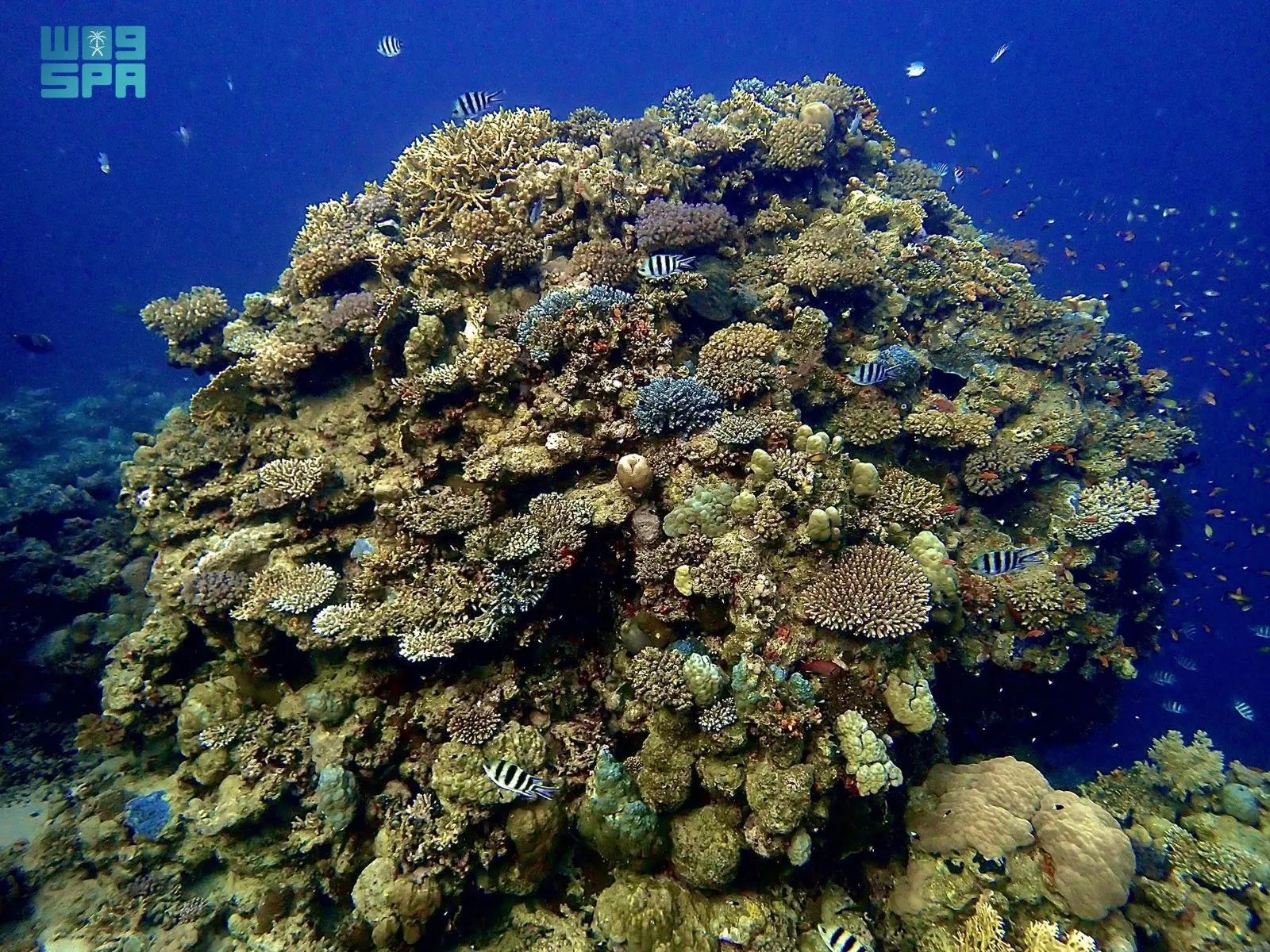
Wildlife Center Reports Red Sea Coral Resilience Despite Climate Challenges
The National Center for Wildlife (NCW) has concluded the second summer phase of its monitoring and assessment program for biodiversity in the Red Sea’s coral reefs, reporting promising results in coral health and overall ecosystem stability.
Field surveys conducted by NCW researchers revealed a notable improvement in coral reef conditions, with no cases of severe bleaching or mass marine mortality, even amid high temperatures. The findings underscore the Red Sea's exceptional resilience to climate change, positioning it as one of the most robust reef systems globally. This resilience reflects the effectiveness of national conservation efforts and reinforces the Kingdom’s growing reputation as a global leader in marine ecosystem protection and biodiversity management.
The center noted that the program was carried out by trained Saudi scientists and researchers using advanced remote sensing technologies and field instruments to monitor the physical and chemical properties of the water. Human activities, such as discarded fishing gear and marine waste, were also tracked to build a comprehensive knowledge base that supports informed environmental planning and the achievement of the program’s objectives.
The NCW highlighted that its marine programs and projects exemplify the Kingdom’s commitment to the Red Sea sustainability initiative and showcase the coordinated efforts of national entities under Saudi Vision 2030, strengthening the Kingdom’s regional and global leadership as a model for effective and sustainable marine biodiversity conservation and natural resource management.








